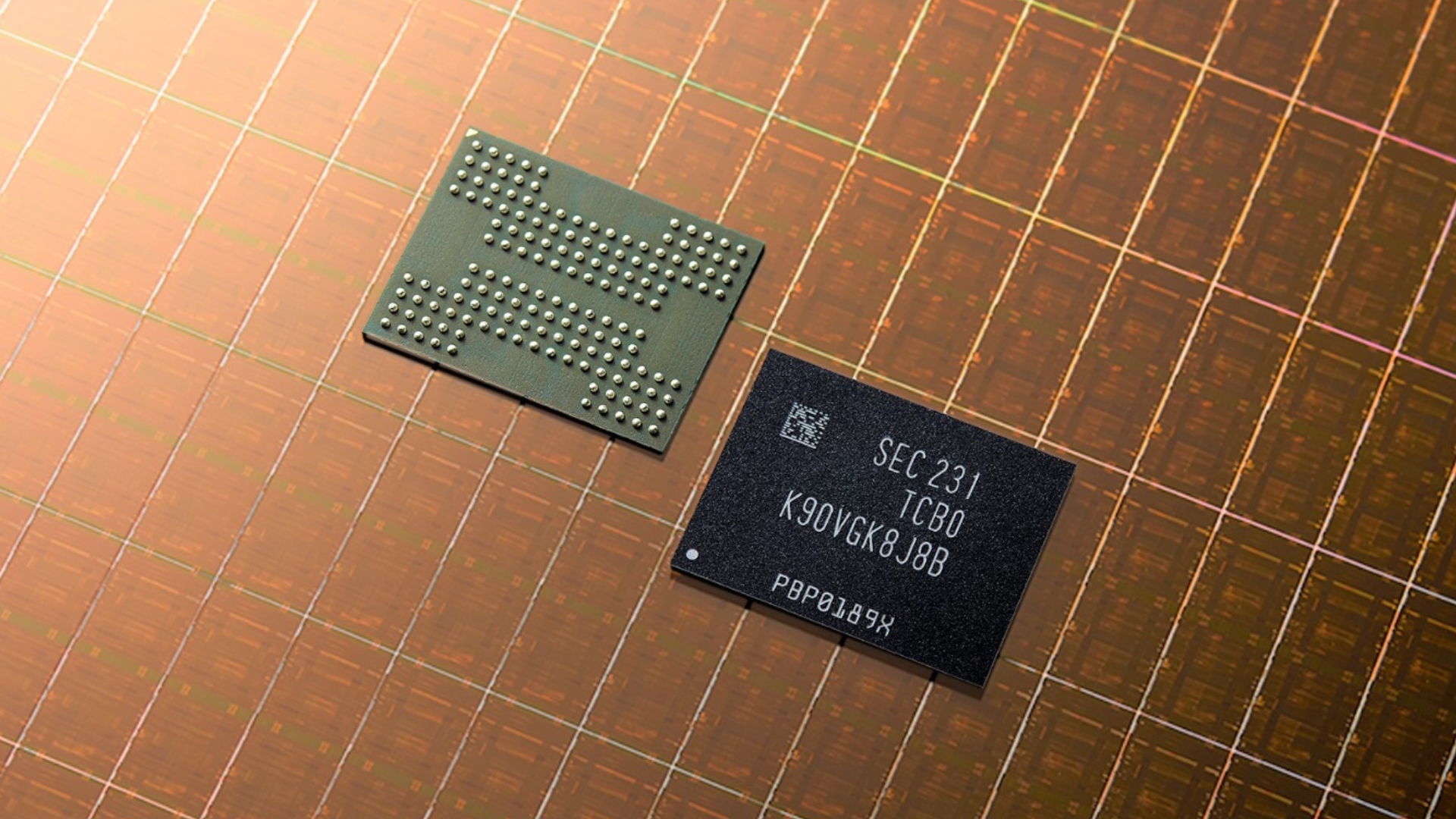- Samsung’s latest eighth-generation V-NAND chips have the “industry’s highest bit density,” according to the South Korean company.
- The new chips offer an input and output speed of up to 2.4 Gbps, faster than the company’s previous generation.
- It seems the chips are headed for enterprise IT applications as mass production begins.
The world of storage tech just got a bit more exciting with South Korea’s Samsung announcing today that it has begun mass production of its 1TB triple-level cell eighth-generation V-NAND chip.
That’s a mouthful, but we’ll break it down: the new chip is part of Samsung’s V-NAND (3D NAND) series of integrated chips made for storage hardware. This latest addition is in its eighth generation.
NAND technology is currently at the top of the range in terms of flash memory types for SSDs. V-NAND, or 3D NAND, is the latest of this type of tech and features layers of vertically stacked NAND cells.
Vertical stacking allows these types of chips to have better performance at lower production costs, as well as lower power requirements to produce twice the speed of NAND chips. They also last around ten times as much as planar NAND chips.
The device features a 1TB capacity, which Samsung is calling the “industry’s highest bit density.” The device is based on the Toggle DDR 5.0 interface, which is the latest NAND flash storage standard.
Adding in a press release that the chip has “the highest storage capacity to date, enabling larger storage space in next-generation enterprise server systems worldwide.”
As part of this “next-generation” capacity, the new chips offer an input and output (I/O) speed of up to 2.4 gigabits per second (Gbps), which Samsung claims is 1.2X faster than the previous generation.
This speed allows the eighth-gen V-NAND to accommodate the performance requirements of PCIe 4.0, and later, PCIe 5.0. The latest PCIe standards allow for high-bandwidth connection to GPUs, SSDs and other peripheral hardware, making operations faster.
The new V-NAND chips will also be smaller but this won’t affect performance, according to the manufacturer.
“Samsung has adopted its advanced 3D scaling technology to reduce surface area and height, while avoiding the cell-to-cell interference that normally occurs with scaling down,” said SungHoi Hur, Executive Vice President of Flash Product & Technology at Samsung Electronics.
While Samsung has revealed that the new technology is being mass-produced, it hasn’t indicated for what the chips will be used for. In August, Samsung announced its 990 PRO V-NAND SSDs for consumer application and gaming.
But these new eighth-gen chips seem to be heading in a different direction:
“The eighth-generation V-NAND is expected to serve as the cornerstone for storage configurations that help expand the storage capacity in next-generation enterprise servers while extending its use into the automotive market where reliability is especially critical,” Samsung concludes in the release.

